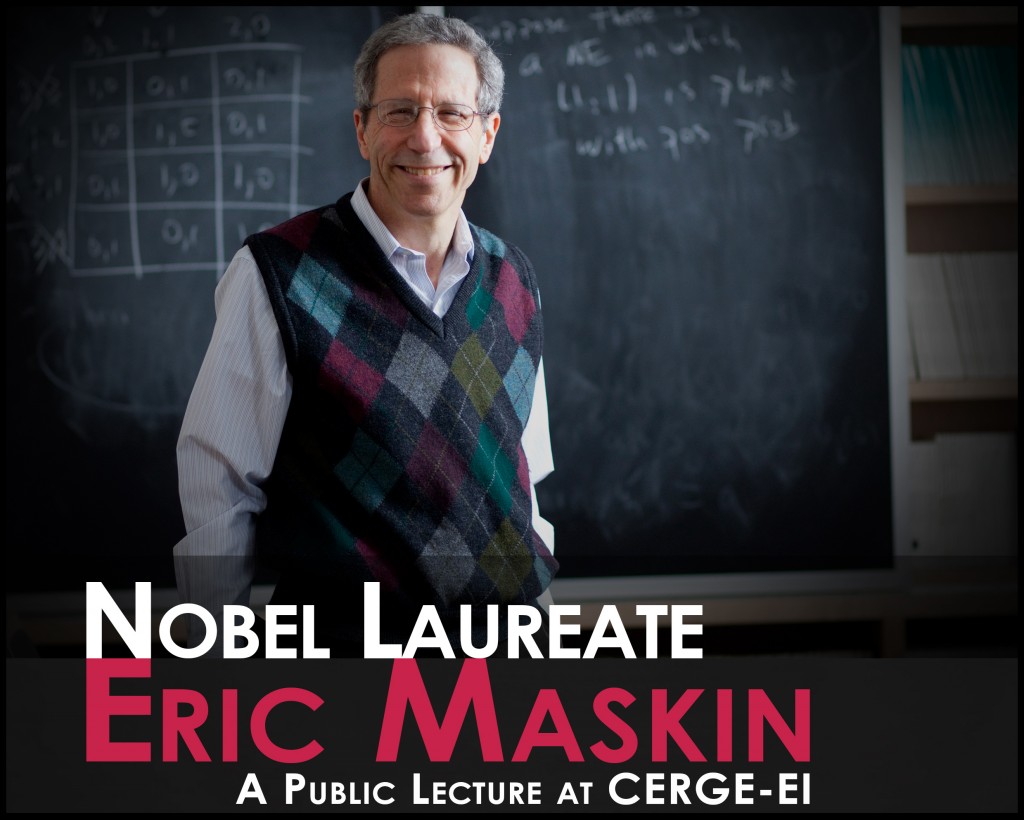
At the end of April 2013, we had the honor to welcome Prof. Eric Maskin (Harvard University) to CERGE-EI in Prague. On April 29, Prof. Maskin gave a public lecture titled “How to Make the Right Decisions without Knowing People’s Preferences: An Introduction to Mechanism Design”.
To begin his lecture, Prof. Maskin contrasted the field of ‘mechanism design’ with other more familiar parts of economic theory. Whereas the bulk of economics takes existing institutions as a given and aims to understand and explain outcomes delivered by those institutions, mechanism design reverses the direction. It starts by identifying outcomes one wishes to achieve and asks whether institutions are able to be designed to achieve the desired outcome(s) and, if so, what these institutions ought to look like. In this sense, mechanism design can be called an “engineering” component of economic theory.
To further illustrate the concept, Professor Maskin offered three concrete applications of mechanism design theory. They were, in the order presented, (1) how can you divide a plot between two people in a way that neither of them envies the share of the other?, (2) how can a government sell a license to allow transmission over a band of radio frequencies to a company which values it most?, and (3) how to choose a public energy source when individual preferences are different and optimal choice depends on the unknown state of the world? Professor Maskin explained how insights from mechanism design theory can provide answers to these intractable questions.
Simple as they are, these examples illustrate key features of mechanism design. First, a designer of the mechanism does not know what the optimal outcomes should be. Secondly, the designer must proceed to indirectly convince participants to reveal necessary information. Finally, participants have their own goals and motivations which may not coincide with those of the designer. Therefore, the mechanism must be ‘incentive compatible’—in other words, it should recognize those goals and reconcile them with those of the designer.
The examples presented during the lecture displayed transparent mechanisms that are implemented to achieve the designer’s goals. For those interested in a general way to understand whether a goal is implementable and, if it is, how to find a mechanism to implement it, Professor Maskin referred to his seminal paper, “Nash Equilibrium and Welfare Optimality.” Professor Maskin concluded with some further examples of possible future applications of mechanism design theory, namely the development of an international treaty on greenhouse gas emissions and the design of policies to prevent financial crises.
While here, Professor Maskin also sat down with CERGE-EI student Maxim Guryunov for a brief interview. Check out the highlights on our CERGE-EI Youtube Channel:
httpv://www.youtube.com/watch?v=zaC4Z2JFWB4&feature=youtu.be
Find the full list of Distinguished Speaker Series at CERGE-EI here
